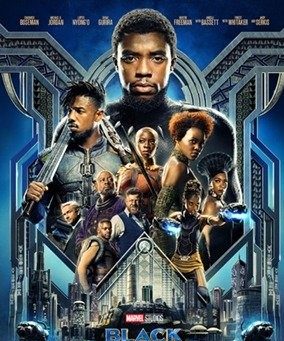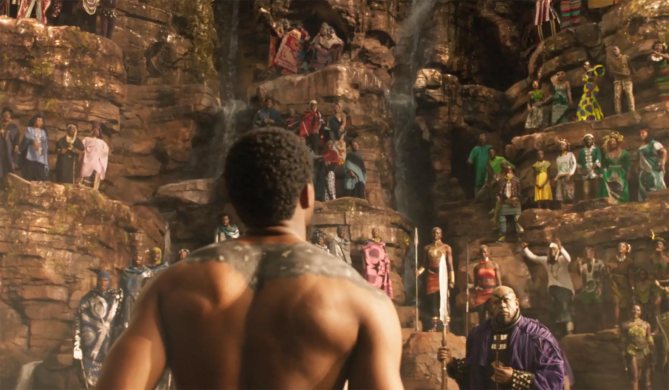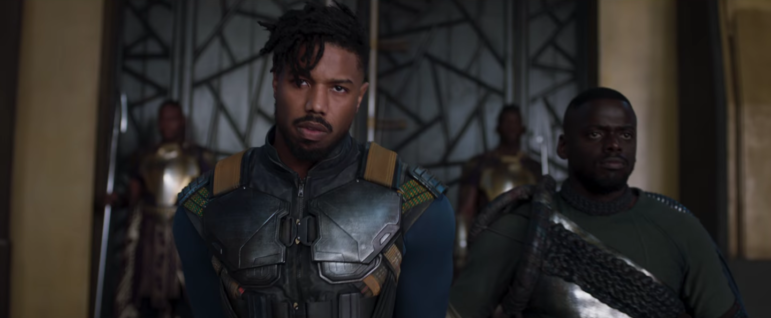
Since Wakanda’s introduction into the Marvel cinematic universe in the underwhelming 2016 film “Captain America: Civil War”, “Black Panther” had gradually picked up pace to become one of the most anticipated movies of 2018. And it certainly delivered.
The film was already projected to make $170 million on its opening weekend a few days before the release, but it had the nerve to say that wasn’t enough and, in the four days after its release on Thursday, made a staggering $241.9 million domestically and $426.6 million internationally, with China, Russia, and Japan all still waiting anxiously for the film’s release in their respective countries.

The movie is set in the fictional world of Wakanda, a country hidden away for centuries from the ravages of war and imperialism that plagued Africa, and home to the rare precious metal vibranium that keeps the country’s technology light-years ahead of everyone else.
After his father’s death in “Captain America: Civil War,” Prince T’Challa (Chadwick Boseman) returns home to assume the throne. He is supported by an ensemble of friends and family: Shuri (Letitia Wright), his radiant and tech-savvy younger sister; Okoye (Danai Gurira), head of the Dora Milaje, the all-female special forces of Wakanda and bodyguards to the king; Zuri (Forest Whitaker), an elder statesmen and keeper of the heart-shaped herb that holds the Black Panther’s powers; Ramonda (Angela Bassett), Queen Mother of Wakanda; W’Kabi (Daniel Kaluuya), T’Challa’s closest friend and head of security for the Border Tribe; and Nakia (Lupita Nyong’o), T’Challa’s former lover and a War Dog, an undercover spy sent to other countries to complete missions. An award-winning principally black cast with many women in leading roles? A movie that portrays the aesthetic of African culture and traditions? Can we ask for more?
Yes we can, despite the all-star cast of heroes and company, what makes “Black Panther” the most memorable is the ascension of one the most complex villains in the Marvel cinematic universe, Erik Killmonger, who Michael B. Jordan plays brilliantly.
Rather than writing the villain off as another superficial and shallow character that only serves as a stepping stool for the hero, director Ryan Coogler creates a foil to the hero: two boys, related by blood, but experiencing two polar opposite realities — T’Challa growing up in the highly advanced African kingdom of Wakanda, and Killmonger growing up in the racially oppressed ghettos of Oakland (key to note that this is Coogler’s hometown and was the birthplace of the real Black Panther Party). And in a way, Killmonger is the charismatic embodiment of the Black Panther Party — of its radical idealism and noble intentions and beginning, but also of its deterioration into factions bent on violence in the name of peace.

We find ourselves almost rooting for Killmonger at times because each beautifully shot scene of Killmonger’s childhood is emotional and moving and allows viewers to empathize with the Wakandan child left behind with his dead father. Therefore, at the ritual combat ceremony, T’Challa not only comes face to face with an opponent that matches him physically blow for blow, he is confronted by an alternate reality — a manifestation of the pent-up anger and frustrations of black people across the globe that still suffer every day.
While Killmonger’s pain and bitterness blinds him from the evil of his actions, his emergence shines a bright light into the failures of the Wakanda project and catalyzes a process of redemption and healing within the global black community, as T’Challa decides to end Wakanda’s isolationism and provide aid to those oppressed in other parts of the world.
One of the most memorable lines of Killmonger comes in a flashback after he is crowned king, where he recalls his father telling him as a young boy that Wakanda would not accept Killmonger because he was “lost.” The young boy cooly replies, “Maybe your home is the one that’s lost. That’s why they can’t find us.” In large part thanks to Killmonger, those left behind to suffer and seemingly forgotten have been found.
Coolger’s unconventional approach to the antagonist and Jordan’s brilliant acting, reminiscent of their work together in “Fruitvale Station,” portrays Killmonger less as an outright villain and more as a tragic hero — flawed, irrational, and complex like the rest of us — and creates a Marvel movie that deviates from the blueprints of a traditional blockbuster superhero movie, and instead redefines “diversity” and “villain.” Wakanda forever.



